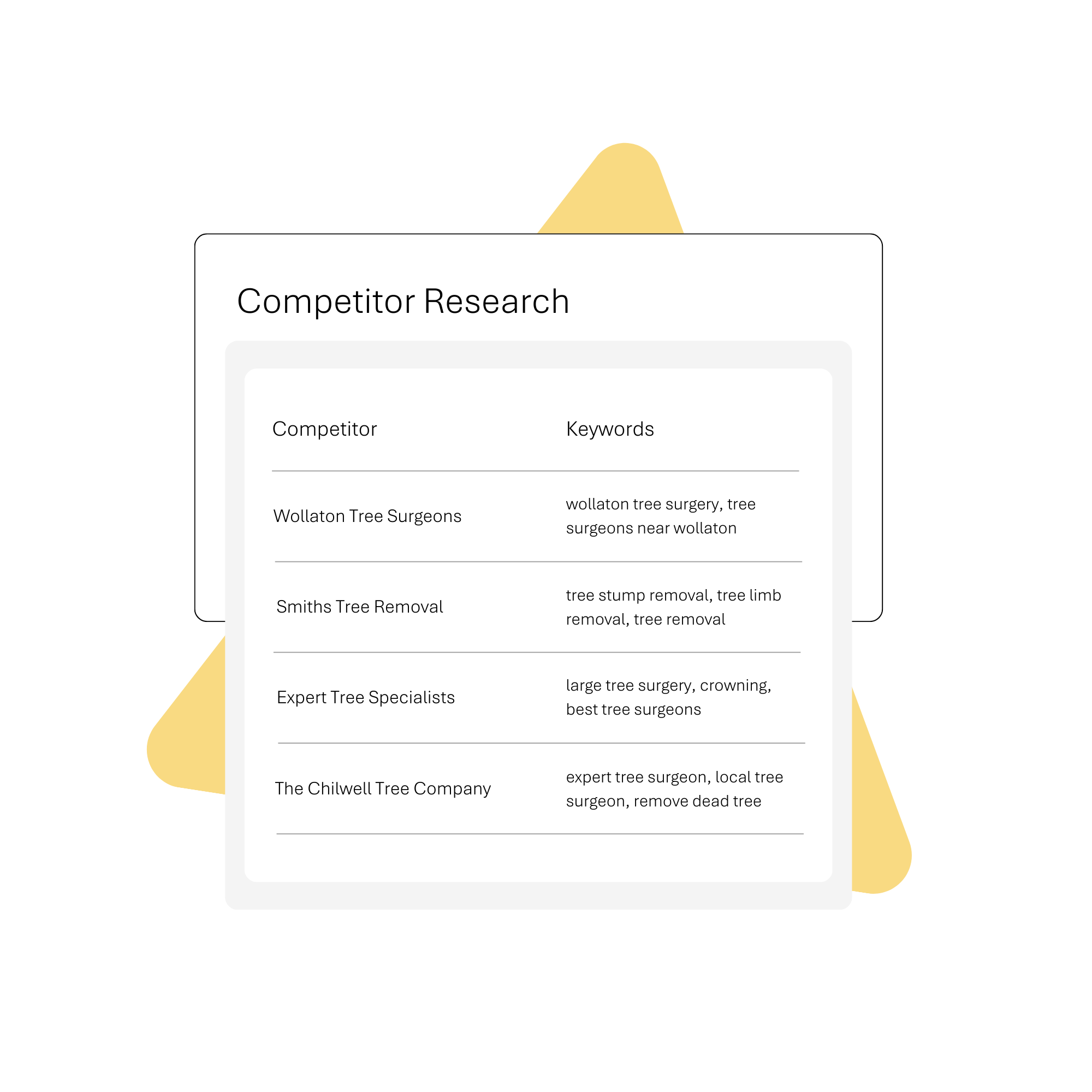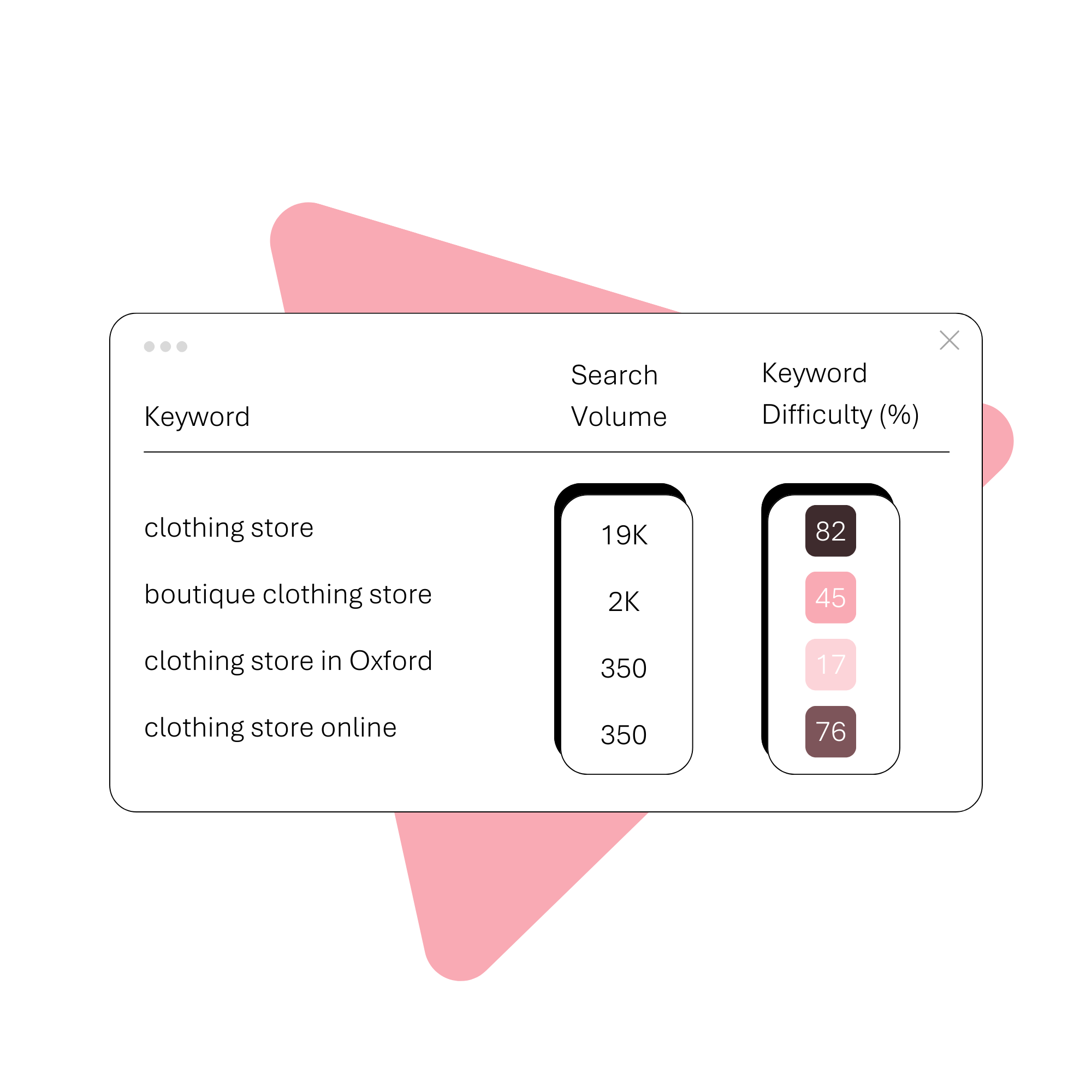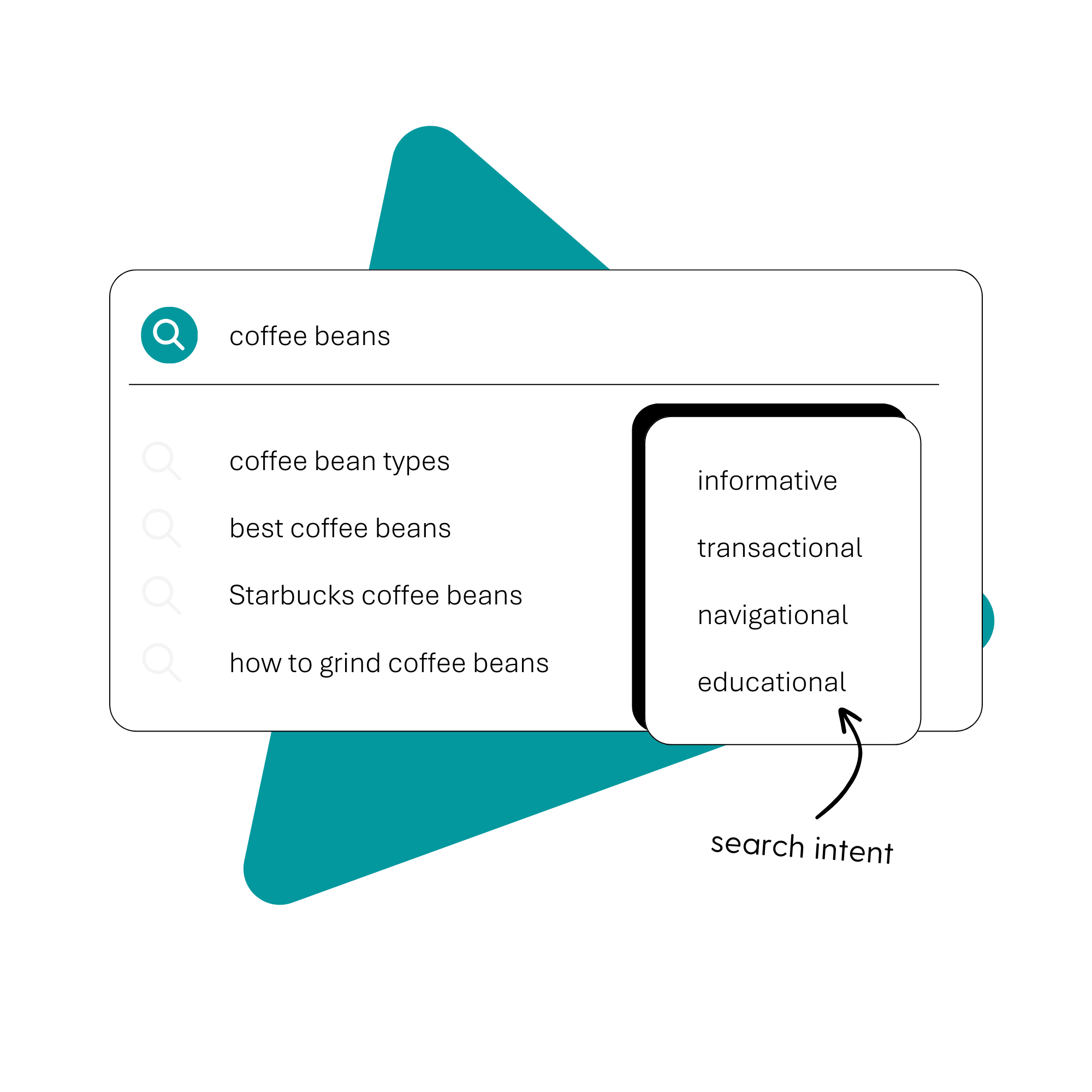Trusted by business and nonprofits


Boost site traffic with in-depth keyword research
SEARCH BETTER, RANK HIGHER
Using several fundamental factors, we identify the most relevant keywords to your brand and content. Balance keyword difficulty, volume, clicks, and search intent to optimise for the right kind of visitors


Consider the intent behind your customers searches
SEARCH INTENT
Our keyword research doesn't just identify terms; it deciphers the intent behind each search, ensuring your content aligns perfectly with what your audience is truly seeking.
Leverage our insights into search intent to tailor your content strategy with unmatched precision. We empower your brand to craft highly targeted, intent-driven content that converts.
We categorise keywords based on the primary intents: informational, navigational, and transactional.
Balance volume and competitiveness
SEARCH VOLUME AND COMPETITION
We identify high search volume keywords relevant to your niche, enabling you to focus your efforts on terms that promise maximum visibility and engagement.
Navigate the competitive landscape with our detailed analysis – outshine your competitors by targeting keywords with the perfect balance of high search volume and low competition
Don't just chase after popular keywords; let us help you prioritise based on strategic value.
Learn from the example of other companies
COMPETITOR RESEARCH
Peek behind the curtain to see how your competitors are succeeding. Dissect their SEO strategies, from the keywords they're targeting to the backlinks they're earning.
Find where your competitors are missing the mark and where the market is underserved.
Use our comprehensive analysis to benchmark your performance against industry leaders. We'll guide you in crafting strategies that not only match but surpass your competitors.


"Excellent writing skills. Great communication skills. Stellar performance. Astounding work ethic. Truly a pleasure to work with."
Terricina Jackson

TLJ Business Solutions

Aim for the perfect keyword density of between 1-2%, using lots of keyword variations.
Search engines look for keywords within the first and last 100 words on a page.
Opening and Closing Paragraphs
Add variations, or secondary keywords, into the subheadings and page sections.
H1 headers should always contain your primary keyword while staying engaging.
H1 Headers
Capture the attention of search engines with SEO-optimised meta descriptions.
Meta Descriptions
Title tags are one of the most important places to add keywords, informing potential readers.
Titles
Keyword Density
H2 and H3 Headers





We'll add high quality keywords directly into your content
INTEGRATING KEYWORDS
Your Questions,
Answered.
Frequently asked questions


